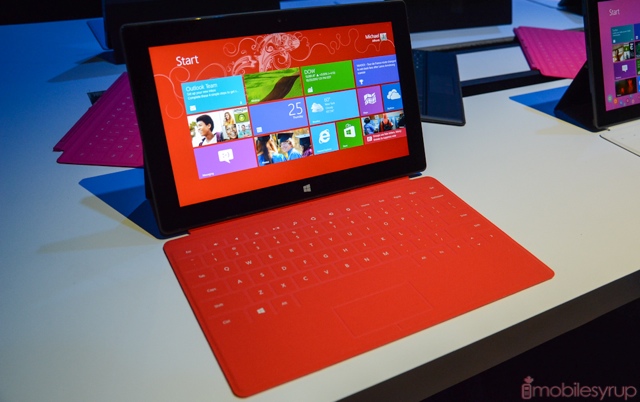
When Microsoft rolled out Windows 8 in 2012, it simultaneously built a version of the operating system intended for ARM-based tablets, the most notable of which was the Surface.
A year later, with the Surface 2, it was clear that Microsoft’s best intentions were just that; Windows RT was losing OEM support, and the x86-based version of the Surface tablet, despite being higher-priced, were outselling, and outclassing, their ARM peers.
With Windows 10, Microsoft is leaving RT behind, focusing on building legacy Win32 support into every corner of its hybrid class-modern operating system. Indeed, the Surface 3, released earlier this year, runs on an Intel Atom X7 chip, powerful enough to be desktop-class but efficient enough to offer equitable battery life to its predecessors.
Microsoft is not leaving Windows RT users out in the cold completely. It already brought Windows 8.1 to the Surface RT and Surface 2, and a substantial update expected in September is meting swift compromise to the remaining user base. To wit, the company is replacing the existing Windows 8 desktop with a more familiar, and likable, Start Menu. While it won’t offer the same functionality as the Windows 10 variant, and apps will still open full-screen rather than windowed, Microsoft is trying to bring as many Win10 features as it can to the aging ARM contingent without breaking things.
Dubbed Windows 8.1 Update 3, WinBeta has some good information about Microsoft’s plans:
“Windows RT 8.1 Update 3 is very reminiscent of the infamous Windows Phone 7.8 update released back in 2012, which ported over the new Start Screen from Windows Phone 8 to the dying platform that was WP7. The same is happening here really, Microsoft is porting the Start Menu, a new feature in Windows 10, over to Windows RT which happens to be a dead platform.”
The site also claims that Windows 8.1 Update 3 was expected to be released on July 29th alongside Windows 10, but technical issues have forced Microsoft to postpone its liberation.
Windows RT users, let us know how you feel about this move.
[source]WinBeta[/source]
MobileSyrup may earn a commission from purchases made via our links, which helps fund the journalism we provide free on our website. These links do not influence our editorial content. Support us here.


